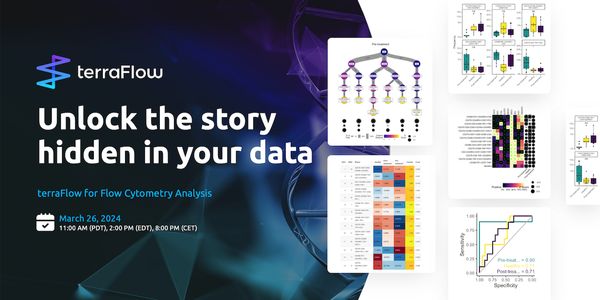Cancer
Cancer: is a disease in which abnormal cells divide uncontrollably and destroy body tissue. Cancerous tumors are malignant, which means they can spread into, or invade, nearby tissues.
-
The Genomes2People Research Program (G2P), led by Robert Green at Brigham and Women’s Hospital, the Broad Institute, Ariadne Labs, and Harvard Medical School, conducts research to acce...Speaker: Robert C. Green, MD, MPH
The personalized treatment of each cancer patient with targeted therapies selected based on our understanding of the molecular biology of cancer has been the long-standing goal of precision...
Speaker:
Istvan Petak, MD, PhD
MAY 14, 2024 | 9:00 AM
C.E. CREDITS
Survival rates for patients with high grade serous carcinoma of the ovary (HGSC) have stagnated for the past fifty years. Despite the presence of tumor mutations and infiltration of immune c...
MAY 14, 2024 | 8:00 AM
Latest advancements in limited sample analysis will be presented. The webinar will focus specifically on single-cell proteomics and deep visual proteomics and how latest innovations in mass...
Speaker:
Karl Mechtler
, Manuel Matzinger
, Sophia Steigerwald
Sponsored By: Thermo Fisher Scientific
MAY 08, 2024 | 7:00 AM
Explore the latest developments in cancer organoid (tumoroid) technology and the promising implications for drug screening during this two-part webinar. In the first half, Colin Paul will di...
Speaker:
Dr. Christophe Deben, Ph.D. Oncology and Cancer Biology
, Dr. Colin Paul
Sponsored By: Thermo Fisher Scientific
In light of the numerous US FDA-approved humanized monoclonal antibodies (mAbs) for cancer immunotherapy, it is surprising that the advancement of B-cell epitope vaccines designed to elicit...
Speaker:
Pravin T.P. Kaumaya, PhD
The recognition of mRNA molecules as a transformative class of therapeutic drugs has soared, particularly with the development of COVID 19 mRNA vaccines. The cancer treatment landscape is si...
Speaker:
Serena Zhao, PhD
Cell-based therapeutics show immense promise in treating a variety of currently incurable diseases due to their potent mechanisms. However, despite recent successes, challenges persist in ma...
Speaker:
Daksha Patel, PhD
Chimeric antigen receptor (CAR) T-cell therapy shows significant potential in treating various human cancers. Unfortunately, researchers have faced difficulty in adapting this therapy to tar...
Speaker:
Anita Mehta, PhD
Chimeric antigen receptor (CAR) T cell therapy has emerged as a novel therapeutic option for cancer patients in recent years. Despite its success, this approach faces acknowledged limitation...
Speaker:
Qiongsi (Alston) Zhang, PhD
Despite the remarkable clinical efficacy of chimeric antigen receptor (CAR) T cells in hematological malignancies, only a subset of patients achieve a durable complete response. Furthermore,...
























